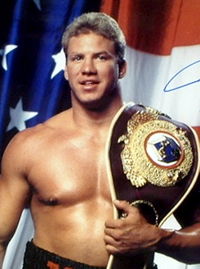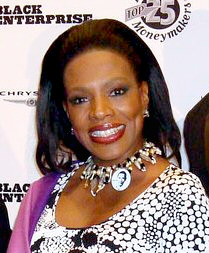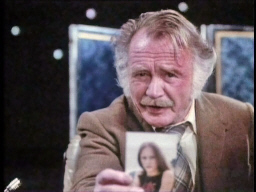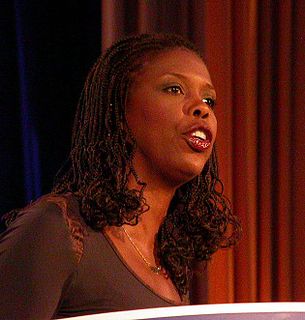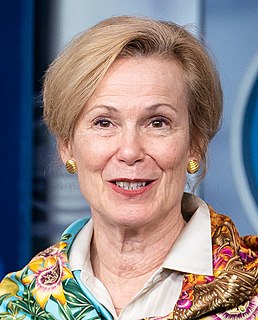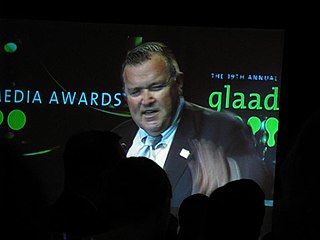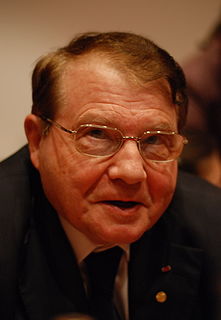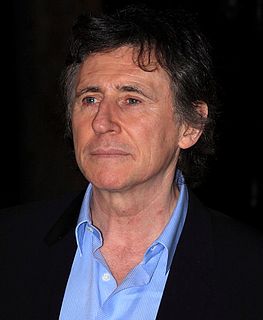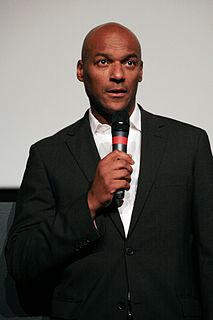Top 355 HIV Quotes & Sayings
Explore popular HIV quotes.
Last updated on April 14, 2025.
When a person tests positive for HIV, it is not a test for the virus itself but for antibodies to the virus, and the test is not able to distinguish between HIV antibodies and a multitude of other antibodies. Many conditions can lead to a false positive result, including flu shots, hepatitis, and pregnancy.
HIV/AIDS from converted from a lethal disease into a chronic disease because basic scientists' fundamental research was done that illuminated aspects of that virus and allowed the generation of therapies like antiretroviral therapies. And so now HIV/AIDS is not a lethal disease, it is a chronic disease.
In my senior year of high school, I was working at a dealership washing cars. For some reason, I asked them to give me a shot as a salesman for a shift. What happened was I sold two cars in one day and they offered me the position. After a while I decided I didn't want the job and so I told the manager I'd contracted HIV from having unprotected sex. It was only half true but I'd been feeling sick and somehow convinced myself I was really dying. I remember I sat in my boss' office, the both of us crying. Later than night he calls my dad and says 'I'm sorry your son has HIV.' It was terrible.
We think that if we get tested, that means you have to have HIV. Or we think that just by knowing someone with HIV, we're going to get HIV or because he's gay or she's a lesbian or whatever. This false information has been put out there and it's created this stigma that stops us from going to find out if we're infected. The truth is it doesn't matter who you are, if you're having sex, you need to be getting tested, plain and simple.
I spent the past week here in India getting a sense of the reality of HIV and AIDS in people's lives. Fathers and mothers are dying, leaving children with no support. Stigma and discrimination is ruining the family lives. There is an urgent need for education, information, and increased awareness of HIV and AIDS. The response needs to be now. We cannot afford to become fatigued.
HIV criminalization is a global trend, but surprisingly Canada has some of the worst HIV laws in the world - they have incarcerated 200 people to date who have not infected anyone, and half of them are black. This is emotional manipulation that began as an anti-immigrant measure and has devolved into an exploitation of sexual anxiety. It's a crisis of meaning.
We're [Clinton Foundation] trying to get rapid tests that give you results when you're right there on site at an affordable price. Ninety percent of the HIV-positive people in the world don't know they have the infection. An enormous amount of infections are being perpetrated by people who don't know they themselves are HIV positive.
Let's face it, fashion was destroyed by HIV. People would just die like flies in the eighties. Then, my brother died of HIV, so I was shaken by it in a way that you cannot imagine. It has sadly been in my life ever since and affected it for such a long time. It won't let go. To me, it's a fight that's not finished. Of course, there are medicines that help, but half the world has no access to them.
In the States, the HIV transmission from mother to child is almost completely preventable - the only mothers who really do transmit it are the ones who don't come in for care. If a mother in the United States or in Europe or in the UK comes to care and gets her medicines, she will have an HIV negative baby. Most people don't know that.
If people are encouraged to come out and say they're HIV-positive and they're given their treatments, then obviously, the people who are marginalized - like intravenous drug users, prisoners, people are made to feel less-than - if they're given the support of the government, and they're given the funding, then it's going to help solve the spread of AIDS and HIV in America.
There's so much stigma around HIV/AIDS. It's a challenging issue, and the people that already have been tested and know their status find it very, very hard to disclose their status, to live with that virus, and to even seek out the kind of information they need. This experience of going to South Africa a decade ago really woke me up to the scale of the HIV/AIDS pandemic in sub-Saharan Africa, how it was affecting women and their children. I haven't been able to walk away from it.
Drug warriors' staunch opposition to needle exchanges to prevent the spread of HIV in addicts delayed the programs' widespread introduction in most states for years. A federal ban on funding for these programs wasn't lifted until 2009. Contrast this with what happened in the U.K. At the peak of the AIDS epidemic in the mid-1990s, the HIV infection rate in IV drug users in the U.K. was about 1%. In New York City, the American epicenter, that figure was 50%. The British had introduced widespread needle exchange in 1986. That country had no heterosexual AIDS epidemic.
When we, hijras, started our activism, we had to tell people, "We exist, we are humans. Please give us nothing but our basic dignity." The biggest misery in the world, I believe, is the feeling of being unloved, and that this community faces a lot. You're not even considered to be human. You're considered transparent. We were ignored until we started organizing, when HIV first became a factor. Even in the HIV world, people could not believe that hijras have sex. And then also we were put in the category of men having sex with men, the gay community.





